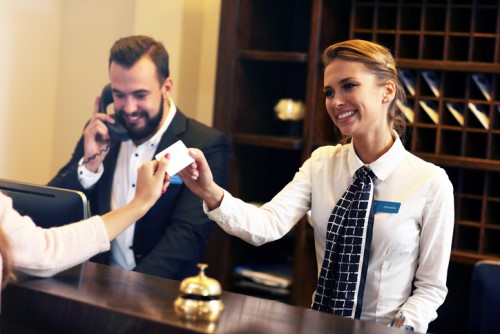

Hotels are a hive of insurance activity. The range of insurance products potentially in play is huge. Guests’ interests are of paramount concern within the hotel business, and it requires significant behind the scenes risk management and insurance expertise – especially as the scope and severity of hotel exposures continues to evolve.
“The hotel space is unique with regards to the range of bespoke insurance products and ancillary coverages that are available,” said Brian Popelmayer, national practice leader, Primary General Casualty, Starr Companies. “At Starr Companies, we bring as many lines to the table as possible, including: primary casualty, excess casualty, property, and things like workplace violence, active shooter and food-borne illness coverages. We want to be a one-stop shop for our clients and brokers.”
Active assailant is just one in a long list of complex exposures challenging today’s hotel industry.
Starr Companies has been offering workplace violence and active shooter coverage for approximately two years. When quoting a general liability policy, the insurer provides a complimentary workplace violence and active shooter indication, which it encourages clients to consider.
The risk of hotel-based active assailant events has grown in tandem with evolution in the industry. Technological advancements like online check-ins and smartphone room keys have reduced the amount of face-to-face trust building and validation between hotel operators and customers, potentially leaving the door open to bad actors.
“Our clients in the hotel space face the constant challenge of finding a balance between giving customers what they want (quick and easy service) while still having interactions with customers to ensure their safety and security,” Popelmayer told Insurance Business America.
He added: “Some are looking at recent tragedies and asking whether they should put metal detectors in hotel lobbies? It’s a tough call. Many visitors will be coming straight from an airport where they’ve had to go through security and have their bags checked. To arrive at a hotel and then stand in line to go through extra security might seem like a customer inconvenience. However, some hotels and resorts are going to have to do it. The question is: will that be sustainable in the long-term?”
The rise of social media has also had an impact on the level of exposure at hotels. In today’s tech-busy world, news of an active shooter event can go viral worldwide within minutes. The risk lies in the form of copycat criminals noting the media exposure of the assailant and attempting something similar themselves, Popelmayer explained.
“This is a challenge not just in the hospitality sector but for the insurance industry as a whole,” he added. “At Starr Companies, we have the strength and depth to deal with these emerging exposures as they come at us.”
